
William Shatner, a Canadian actor, director, producer, author, and pop culture icon, is best known for his legendary portrayal of Captain James T. Kirk in the Star Trek franchise. With a career that spans over seven decades, Shatner’s impact on science fiction, television, and film has been substantial, making him one of the most recognizable figures in entertainment history. His influence, however, extends beyond his role as Captain Kirk. Shatner has explored diverse genres, experimented with music, written numerous books, and even ventured into space in his nineties, solidifying his reputation as an intrepid, boundary-breaking individual.
Early Life and Education
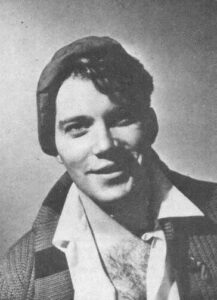
William Alan Shatner was born on March 22, 1931, in Montreal, Quebec, Canada. He was the middle child of Joseph Shatner, a clothing manufacturer, and Anne Garmaise. Raised in a conservative Jewish household, Shatner exhibited a passion for performance early on. He attended West Hill High School in Montreal and later enrolled at McGill University, where he studied economics. However, his passion for acting overshadowed his initial academic interests. Shatner graduated from McGill with a Bachelor of Commerce degree in 1952 but pursued theater and acting immediately afterward.
Career Beginnings: The Stage and Early Television Work
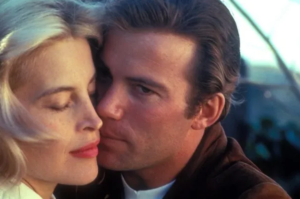
Shatner began his career on the stage, initially working with the Canadian National Repertory Theatre and later joining the Stratford Festival in Ontario. There, he honed his craft, working alongside renowned actors such as Christopher Plummer. His early performances in Shakespearean roles helped him develop a unique, expressive style. This experience at Stratford became foundational to his career and set the stage for his transition into television and film.
In the 1950s, Shatner moved to New York, where he started landing television roles in live dramas, including appearances on series like Studio One, The Twilight Zone, and The Outer Limits. His role in the 1962 film The Intruder showcased his commitment to challenging parts, as he played a white supremacist attempting to incite racial tension in the American South. Although the film was not commercially successful, it demonstrated Shatner’s willingness to tackle complex, sometimes controversial, characters.
The Rise of an Icon: Star Trek and Captain James T. Kirk
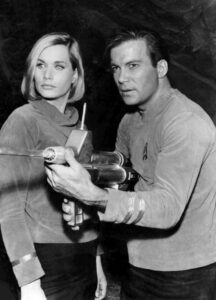
Shatner’s big break came in 1966 when he was cast as Captain James T. Kirk in Gene Roddenberry’s Star Trek. As the captain of the Starship Enterprise, Shatner brought intensity and charisma to the role that helped define the character. Kirk’s bravado, coupled with Shatner’s unique delivery, became a hallmark of the series. Though the original Star Trek was canceled after only three seasons due to low ratings, it became a cultural phenomenon in syndication, inspiring generations of fans and leading to one of the most devoted fandoms in history.
Kirk was a bold and decisive leader, often depicted as a “space cowboy” with a deep sense of duty and morality. Shatner’s portrayal was pivotal in shaping the character, turning Kirk into an archetype for heroic, quick-thinking leaders in science fiction. The role also served as a vehicle for exploring social issues, with episodes addressing racism, war, and human rights in a futuristic context. This impact resonated deeply, solidifying Shatner’s place in pop culture.
He also became part of, along with Nichelle Nichols, the first instance of a white man kissing a black woman in a scripted television series, in the United States. This fleeting moment aired just one year after the U.S. Supreme Court struck down national laws prohibiting interracial marriage and was arranged between Shatner, Nichols, and Star Trek creator Gene Rodenberry despite network objections.
NBC executives learned of the planned kiss in an episode titled Plato’s Stepchildren, slated to broadcast in 1968. They worried it would anger TV station in the deep south and ordered two takes of the scene to be shot. One shot could include the kiss while the other didn’t. Nichelle recounted the takes in her memoir: Beyond Uhura: Star Trek and Other Memories.
“Knowing that Gene was determined to air the real kiss, Bill shook me and hissed menacingly in his best ham-fisted Kirkian staccato delivery, ‘I! WON’T! KISS! YOU! I! WON’T! KISS! YOU!’
It was absolutely awful, and we were hysterical and ecstatic. The director was beside himself, and still determined to get the kissless shot. So, we did it again, and it seemed to be fine. “Cut! Print! That’s a wrap!”
The next day they screened the dailies, and although I rarely attended them, I couldn’t miss this one. Everyone watched as Kirk and Uhura kissed and kissed and kissed. And I’d like to set the record straight: Although Kirk and Uhura fought it, they did kiss in every single scene. When the non-kissing scene came on, everyone in the room cracked up. The last shot, which looked okay on the set, actually had Bill wildly crossing his eyes. It was so corny and just plain bad it was unusable. The only alternative was to cut out the scene altogether, but that was impossible to do without ruining the entire episode. Finally, the guys in charge relented: “To hell with it. Let’s go with the kiss.” I guess they figured we were going to be cancelled in a few months anyway. And so, the kiss stayed.”
Post-Starship Crash

Star Trek was canceled in 1969 and Shatner struggled to find work afterward. Owing his lack of employment to being typecast at James Kirk, he lost his home and was forced to live in a truck bed camper in the San Fernando Valley. This led to him taking any parts presented to him and a period of his career defined by b-movie roles in movies and on television.
He played parts in Big Bad Mama in 1974, The Devil’s Rain in 1975, Kingdom of Spiders in 1977, and many others. He also made money by appearing on game shows such as Beat the Clock, Celebrity Bowling, The Hollywood Squares, and other shows that brought on celebrity guest stars.
This career downturn lasted until 1979 when Star Trek: The Motion Picture was released to an audience desperate for more of the universe. Throughout the decade, the canceled series grew a cult following that created and popularized the Star Trek Convention, leading to development of a new series, Star Trek: Phase II. However, after the success of Star Wars in 1977, NBC executives decided to switch the project to a feature film, believing it would make more money.
The movie catapulted Shatner back into the spotlight. This led to him being reestablished as a leading man, meaning more roles, including that of Sgt. T.J. Hooker.
T.J. Hooker
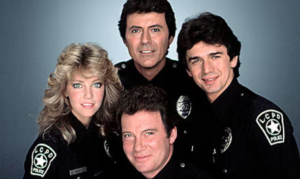
In T.J. Hooker, William Shatner took on a gritty new role as the titular character, Sgt. T.J. Hooker, a veteran police officer dedicated to training young recruits. The series aired from 1982 to 1986, blending police action with moments of humor and camaraderie. Shatner’s Hooker, partnered with Vince Romano played by Adrian Zmed and later joined by Heather Locklear’s Officer Stacy Sheridan, worked to protect the city’s streets. This role allowed Shatner to break from his Star Trek persona and showcase his versatility in an intense, action-driven drama.
The show was initially a midseason replacement on ABC and later moved to CBS, where it maintained a loyal fanbase even after shifting to a later time slot. T.J. Hooker became notable for its straightforward, action-packed approach, depicting the struggles of law enforcement in the 1980s while maintaining Shatner’s on-screen charisma and presence.
TekWar and Authorship

His time as Hooker inspired him to create a character that served as a hybrid of T.J. and Kirk. He would be a former police officer working as a private investigator in a dystopian sci-fi setting and led to the inception of his literary series TekWar. Shatner partnered with Ron Goulart, an established sci-fi writer, and wrote a series of books that sold hundreds of thousands of copies. The series was also put on the big screen as four made for TV movies. William Shatner took on the role of his main character’s boss, Walter Bascom. He returned to the role in a brief television series for the USA Network, SyFy, and CTV in Canada.
In addition to fiction, Shatner has written numerous memoirs, including Up Till Now (2008) and Shatner Rules (2011). These works offer insight into his career, his approach to acting, and his thoughts on fame. Through his writing, Shatner has built a reputation for self-deprecating humor and a reflective, candid approach to his experiences. His books reveal his journey from a struggling actor to a pop culture icon, as well as his challenges, triumphs, and resilience.
A Unique Voice in Music

While Shatner’s musical endeavors have been met with mixed reviews, they reveal his adventurous spirit and willingness to experiment. His spoken-word albums, including The Transformed Man in 1968 and Has Been in 2004, blend poetry, spoken word, and music. Though some critics initially dismissed his musical style as unconventional, Has Been received acclaim for its introspective lyrics and collaboration with musician Ben Folds. Shatner’s covers of classic songs, such as his rendition of “Rocket Man” by Elton John, are often cited for their unique, dramatic interpretation, further illustrating his willingness to push artistic boundaries.
A Real Space Odyssey

In 2021, Shatner took a remarkable step beyond his fictional space adventures by traveling to space aboard Blue Origin’s New Shepard rocket. At 90, Shatner became the oldest person to travel to space, an experience he described as profoundly moving. His brief journey allowed him to witness the Earth from space, fulfilling a dream he had cherished since his early days on Star Trek. The experience left him deeply emotional and reflective, as he remarked on the fragility of Earth and the wonder of the cosmos. This journey symbolized Shatner’s lifelong connection to space exploration, both real and fictional, and cemented his legacy as an intrepid adventurer.
Legacy and Impact
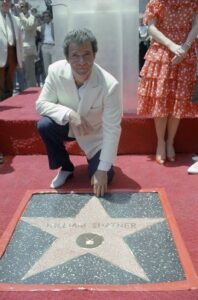
William Shatner’s career has had a lasting impact on both the entertainment industry and science fiction. His portrayal of Captain Kirk helped popularize space exploration in pop culture, influencing generations of fans, scientists, and astronauts. Star Trek’s themes of exploration, diversity, and resilience have resonated deeply with audiences worldwide, and Shatner’s portrayal of Kirk remains one of the most iconic characters in television history.
Shatner has been honored with numerous awards, including an Emmy, a Golden Globe, and a star on the Hollywood Walk of Fame. In addition, his influence on science fiction and pop culture has been recognized with induction into Canada’s Walk of Fame, a Governor General’s Performing Arts Award, and the Saturn Award for Lifetime Achievement. His impact extends beyond accolades; he has inspired fans to pursue careers in science, technology, and space exploration.
Personal Life and Philosophy

Shatner’s personal life has been filled with challenges and resilience. He has been married four times and faced significant losses, including the tragic death of his third wife, Nerine Kidd, in 1999. Despite personal setbacks, he has maintained a zest for life and an enduring sense of humor. Shatner’s philosophy, as expressed in his books and interviews, revolves around embracing curiosity, facing challenges head-on, and living life to the fullest. Known for his self-aware, often humorous approach to his persona, Shatner is comfortable with the eccentricities that have marked his career. He frequently parodies his own image, demonstrating an openness to reinvention and an appreciation for the absurdities of fame.
Current Explorations

William Shatner, now in his 90s, leads an active and dynamic life and has continued to explore diverse creative pursuits. Recently, he shared his personal philosophy for staying energetic: remaining curious and maintaining good health, which he attributes to “luck” and consistent wellness over the years. His latest project released in 2023, You Can Call Me Bill, takes a reflective look at his life and career, a project he initially hesitated to undertake but ultimately embraced as a unique collaboration opportunity. In addition to his entertainment projects, he’s also opened up about a serious health scare. He was diagnosed with stage 4 melanoma, which was treated successfully with surgery and immunotherapy. Shatner’s candid discussion of his experience with cancer highlights the importance of early detection and proper treatment, which is a topic he addressed at the American Academy of Dermatology’s annual meeting.
William Shatner’s strong bond with his family and his on-again relationship with his former wife Elizabeth Martin also play a vital role in his life, helping him stay grounded and motivated. Through his varied engagements, he continues to show a zest for life and a desire to connect with fans and audiences around the world. He also hosts and executive produces a series for the History Channel titled The UnXplained. This non-fiction show explores mysterious phenomena from around the world with experts weighing in on the topics. It’s a clear indicator that, even in his 9th decade, he still has a burning passion to learn more about the world around him, and even the universe beyond it.